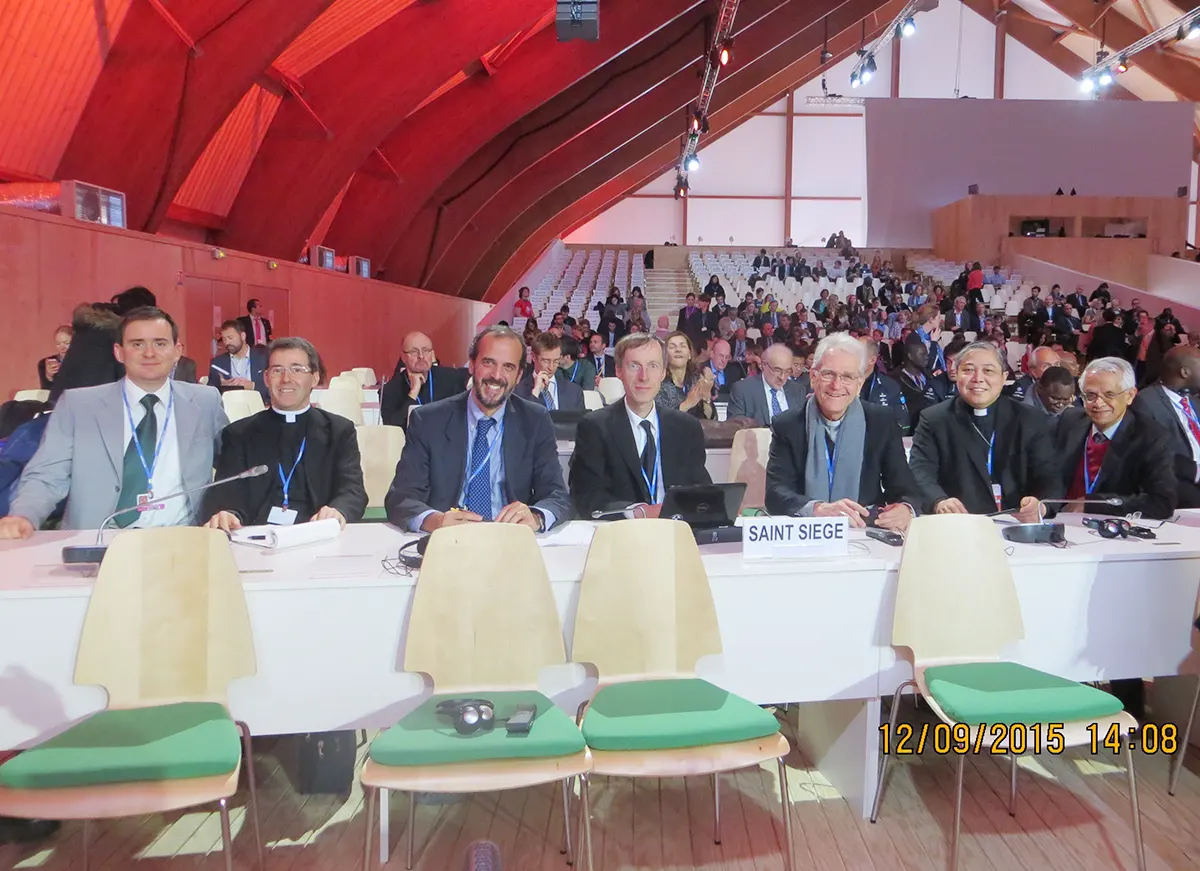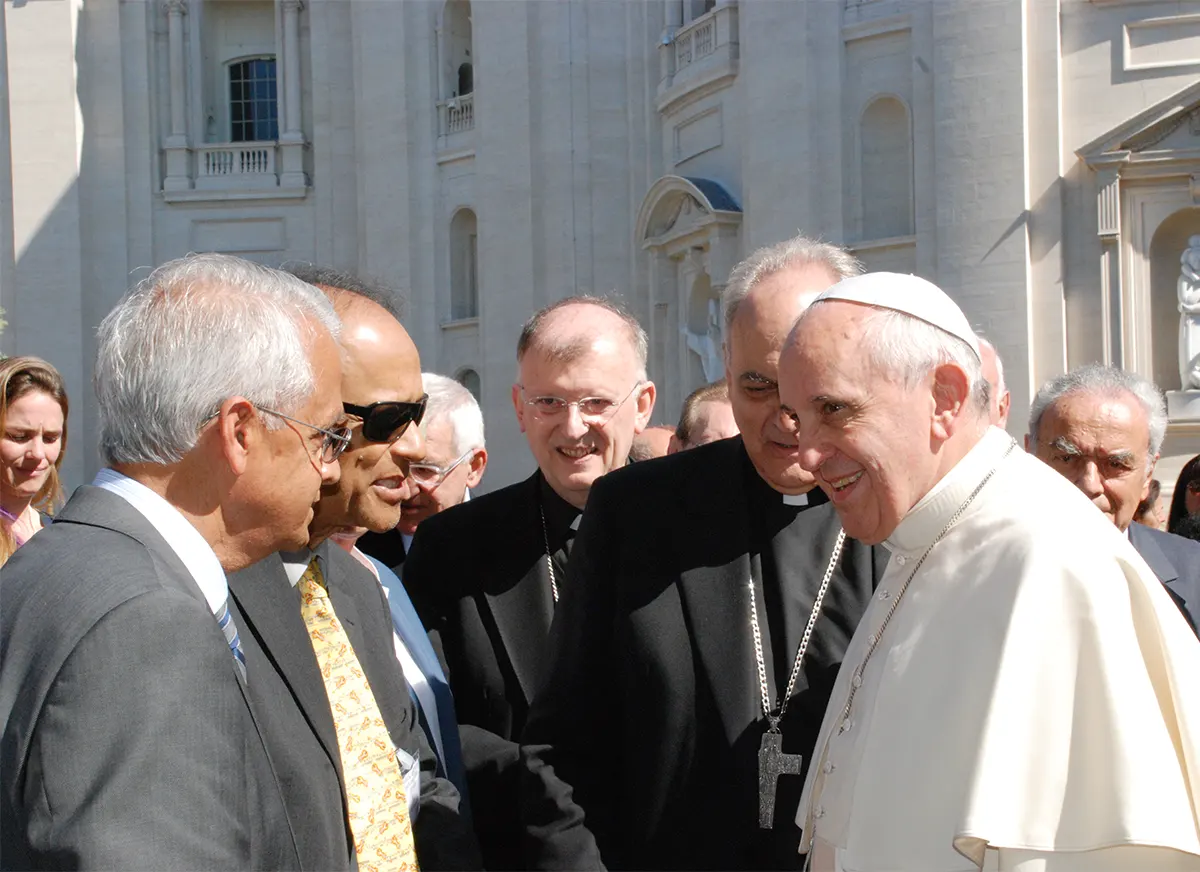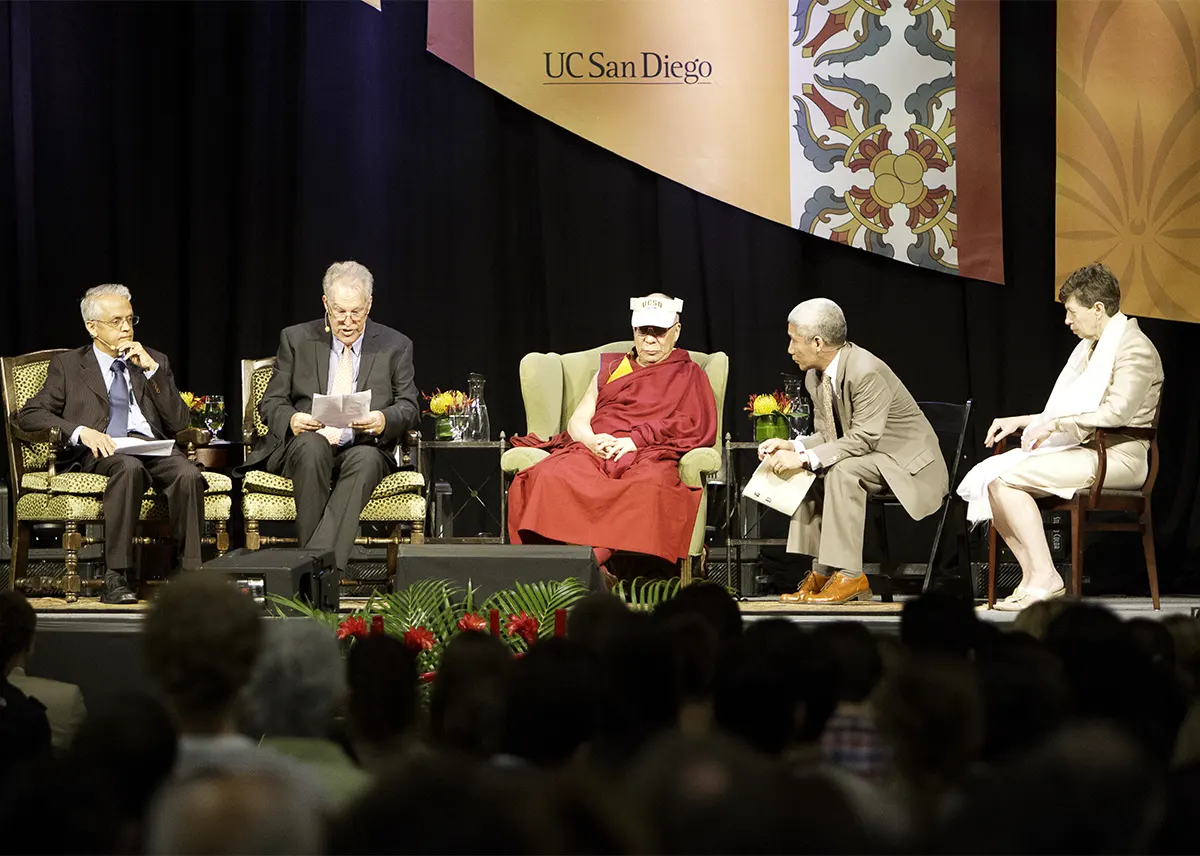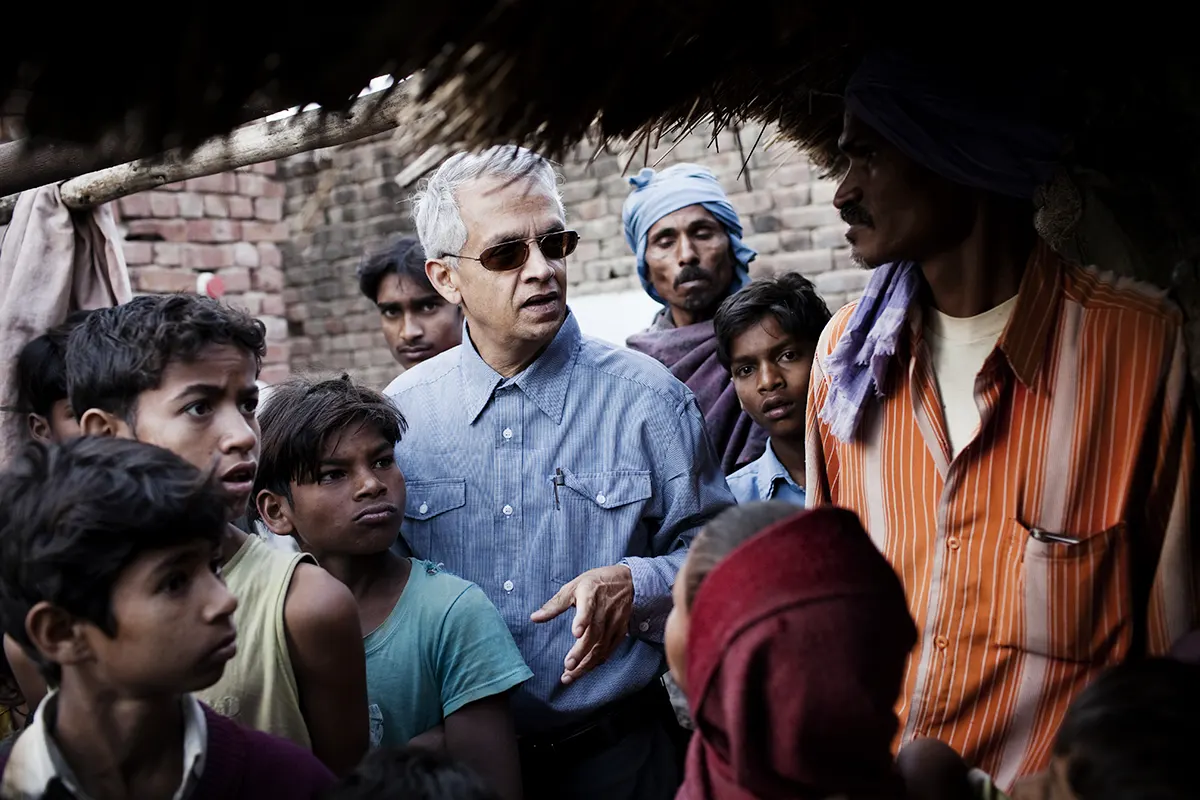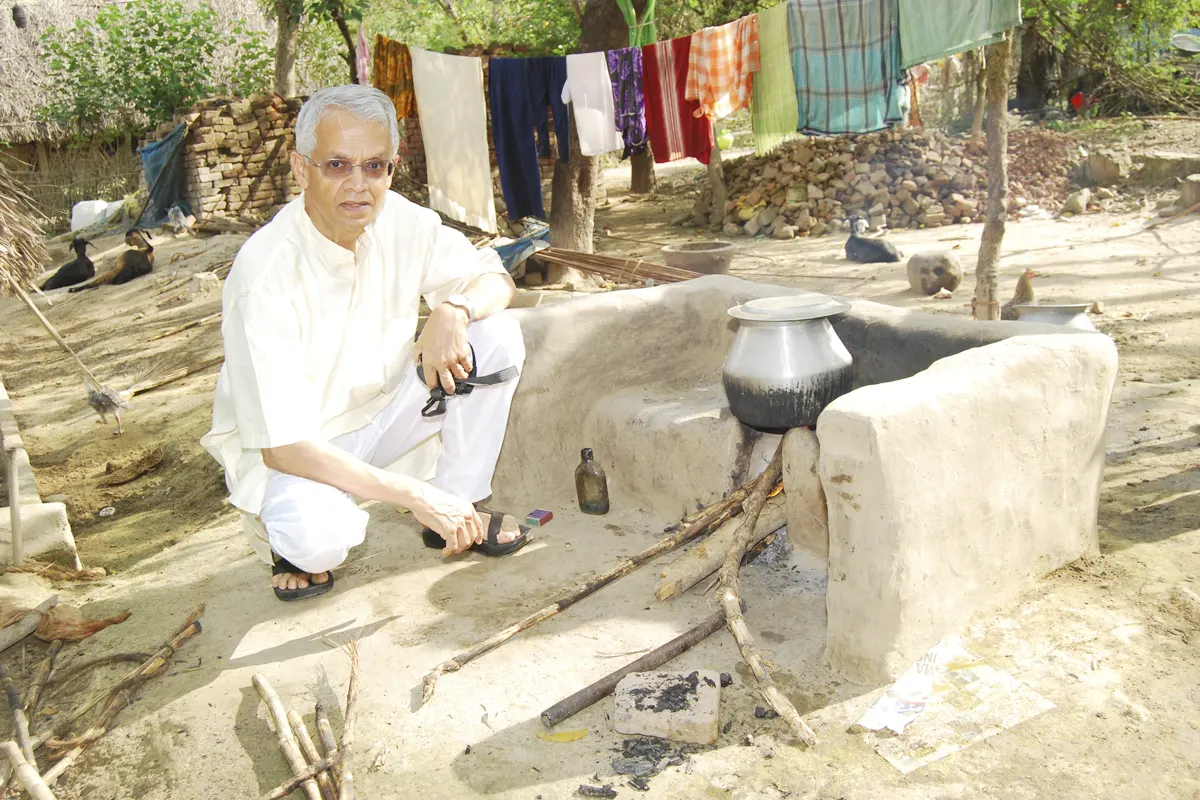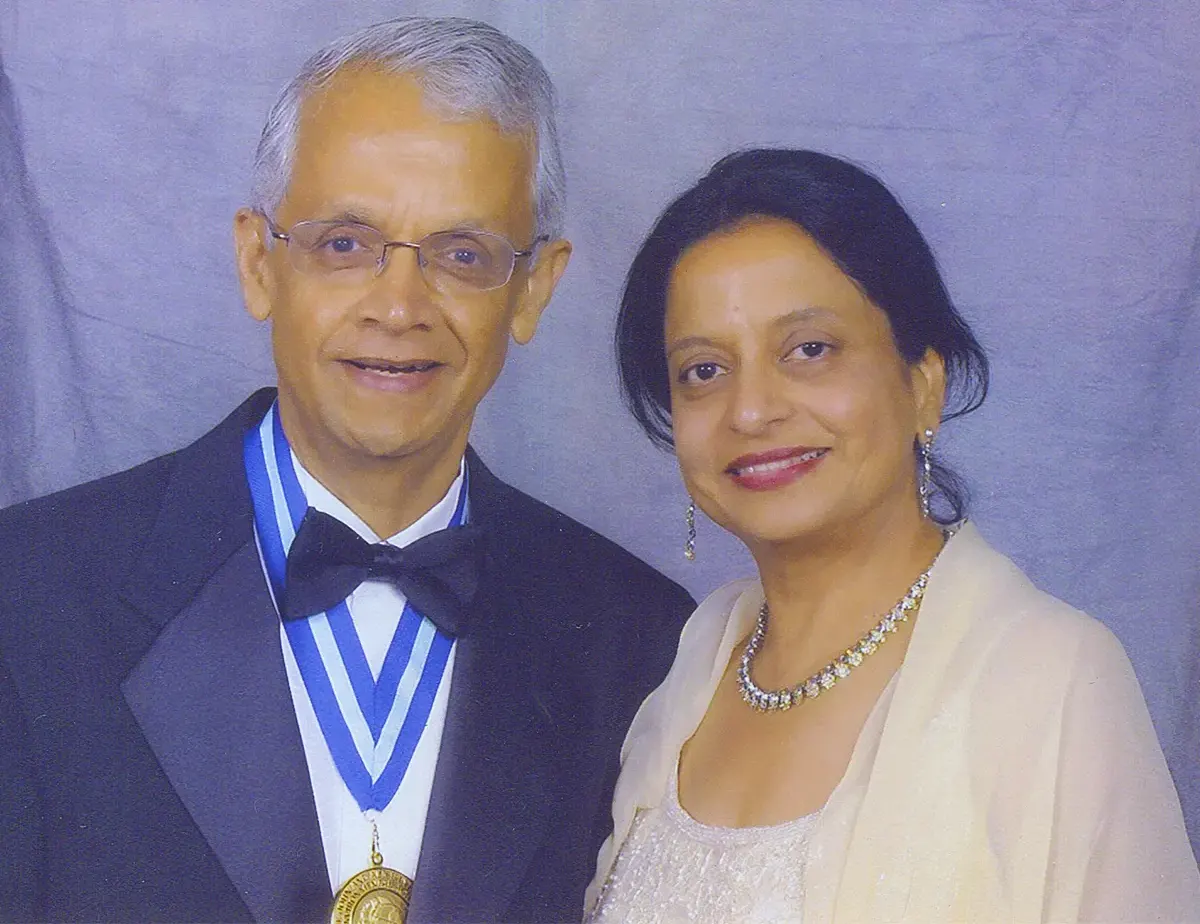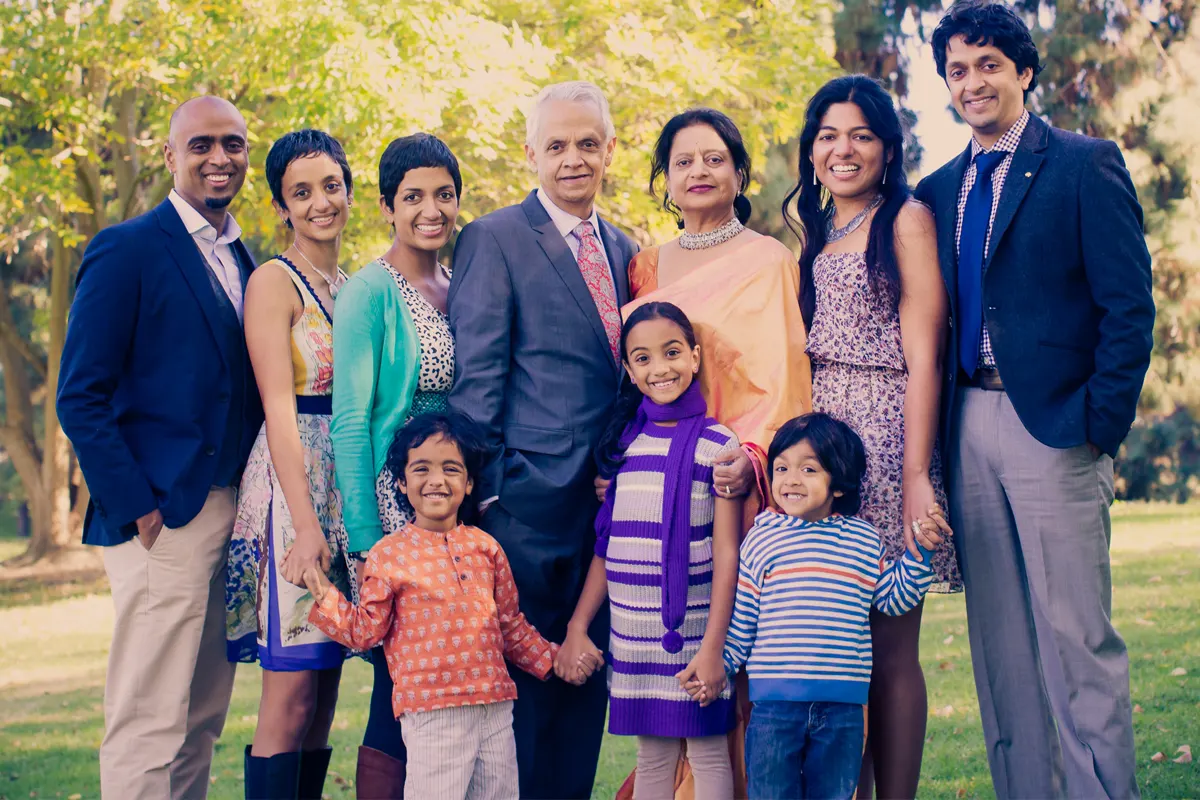He presented data to show that more than 50% of the greenhouse gas pollution comes from the most wealthy one billion people, while the poorest three billion people contribute 5% or less. He persuaded the assembled group that global warming is largely due to over-consumption by the wealthy. The meeting ended with the conclusion that "humans must fundamentally change their attitude about one another and nature."
When the Pope asked him what he could do to help, Professor Ramanathan replied, "You have now become a moral leader to the world beyond Catholicism. So, in your speeches, please ask people to be good stewards of the planet."
Professor Ramanathan then laid the foundation for science and religion to work together on climate change, and for climate change to be accepted as a moral issue. Although there are areas where science and religion are in conflict, the need to protect nature is something that all religions agree on and teach. We can enjoy the gifts of nature, but should not abuse it.
Religious leaders can teach moral lessons that scientists and politicians cannot, before humans are forced to face thousands of years of adverse climate changes.
Professor Ramanathan was able to engage with the 14th Dalai Lama at a few events. The 14th Dalai Lama has said that compassion across borders is the way to solve the problem of climate change. And based on the professor's advice, he also mentioned global warming during his discourse at the University of California, San Diego, in 2017.
Professor Ramanathan has also spoken to Hindu leaders and continues to be actively involved in forming alliances with faith communities for the fight against climate change.
Professor Ramanathan and his wife will celebrate 50 years of marriage in 2023. Both are from Chennai, and they married in an arranged marriage. According to his wife, Professor Ramanathan is a goal-oriented man who always puts his work first. However, he never neglected his family. Even though he was busy travelling around the world to conduct research and experiments, he always came home for his and his wife's birthdays and also anniversaries.
He also always made sure that they understood each other well by explaining to his wife about what kind of research he was doing, why he had to travel, and why he was working at night, so that she would not have any worries or doubts.
His wife says that he always tries hard and is never satisfied. No matter what prizes he wins or how many prestigious scientific journals he gets published in, it doesn't matter to him. His eyes are always on the goal. He is now driven by the need to make a difference by reducing the substances that are causing global warming, so that everyone does not suffer as a result.
- Editor-in-chief
- Itaru Yasui, Former Vice-Rector, United Nations University / Professor Emeritus, The University of Tokyo
Address from the Editor-in-Chief - Editorial supervisor
- Akio Kitoh, Former Director, Climate Research Department, Meteorological Research Institute, Japan Meteorological Agency
- (Affiliation is at that time of release.)


